News
-
 Computing
ComputingAI can predict which criminals may break laws again better than humans
Computer algorithms are better than people at forecasting recidivism, at least in some situations, a new study finds.
-
 Health & Medicine
Health & MedicineCoronavirus’s genetic fingerprints are used to rapidly map its spread
Fast and widespread scientific data sharing and genetic testing have created a picture of how the new coronavirus spreads.
-
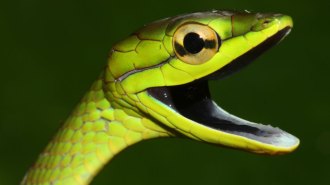 Animals
AnimalsSnakes suffered after a frog-killing fungus wiped out their food
A frog-killing fungus that swept through Panama had a hidden effect. A new study finds that snake diversity declined post-fungus at one field station.
-
 Physics
PhysicsThe fastest way to heat certain materials may be to cool them first
A theoretical study reveals that, in certain situations, some materials might heat up more quickly after first being cooled.
-
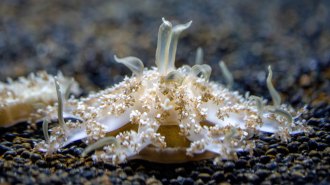 Animals
AnimalsJellyfish snot can sting swimmers who never touch the animal
Researchers have found mobile cellular blobs coated with stinging cells in mucus from a jellyfish that sits upside-down on the seafloor.
-
 Humans
HumansSome West Africans may have genes from an ancient ‘ghost’ hominid
A humanlike population undiscovered in fossils may have passed helpful DNA on to human ancestors in West Africa starting as early as 124,000 years ago.
By Bruce Bower -
 Oceans
OceansThe Deepwater Horizon oil spill spread much farther than once thought
Computer simulations reveal the full extent of the 2010 Deepwater Horizon oil spill in the Gulf of Mexico.
-
 Quantum Physics
Quantum PhysicsScientists entangled quantum memories linked over long distances
The entanglement of quantum ‘hard drives’ is a crucial step toward creating a quantum internet.
-
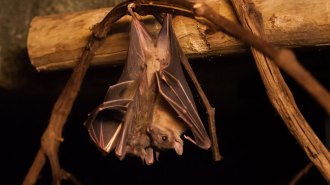 Life
LifeBats’ immune defenses may be why their viruses can be so deadly to people
A new study of cells in lab dishes hints at why viruses found in bats tend to be so dangerous when they jump to other animals.
-
 Physics
PhysicsHow to make the best fried rice, according to physics
Researchers show exactly how rocking and sliding a wok can launch fried rice into the air, letting it cook at a high temperature without burning.
-
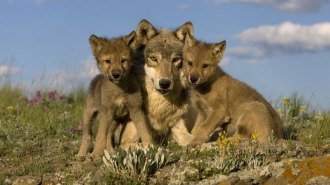 Life
LifeWolves regurgitate blueberries for their pups to eat
The behavior, documented for the first time, suggests that fruit may be more important to wolves than previously thought.
By Jake Buehler -
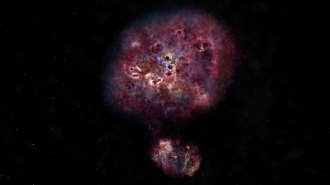 Space
SpaceAn ancient galaxy grew massive — then oddly stopped making stars
After ferociously producing stars for a few hundred million years, this galaxy in the early universe gave up, and astronomers aren’t sure why.